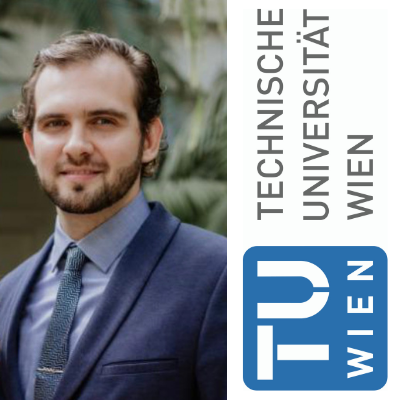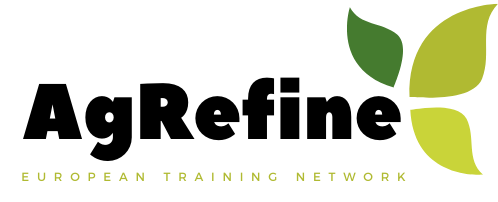
Three-phase-bioreactor scalability and Anaerobic Digestion-retrofitting analysis.
Host – Technische Universität Wien, Austria
The retrofitting of existing Anaerobic Digestion (AD) reactors requires that existing AD units to be synergistically integrated as TBP’s 2nd phase reactors. However, AD configurations vary significantly with regard to geometries of mixers, power input requirements, feedstock rheology, fermenter geometry (size and presence of baffles etc.) and gas productivity. To find cost effective and optimally operated retrofitting, nowadays modelling is preferably applied to predict and quantify possible achievements before any pilot or full-scale deployment can be commissioned. Computational Fluid Dynamics (CFD) which allows the time-resolved calculation of 3D flow fields to analyse local velocities, turbulence, pressure, concentration, shear rate dependent viscosity effects, local reaction rates and more will be implemented to achieve this. The successful candidate will work with the experienced CFD researchers’ team at TUW.
Initially based in TUW and under the supervision of Prof. Harasek with input from Mr. Mandl (TBWR), the successful candidate will:
- Learn opensource CFD modelling focussing on the computation of large-scale AD reactors,
- Develop and implement modelling concepts based on DoE to improve the geometric design and to find optimal operating conditions under design constraints e.g. with regard to retrofitting,
- Be seconded to European Biogas Association (Belgium) to gather process data on existing AD systems,
- Stay with Enviro-Eye Engineering (Ireland) under the supervision of Mr. Galvin to learn about the application of “Energy Efficient Design” according to IS399/ISO50001 standards,
- Disseminate an open source CFD toolbox for the flow investigation of the TPB systems.
My name is Fernando Ramonet and I am from the north west of Mexico, where I studied Industrial and Systems Engineering at the University of Sonora. While I was studying, I specialized in the five main nondestructive testing techniques. I started a second degree on Materials Science, which I left half way through to pursue a master’s degree.
In September of 2018 I started a Master´s Degree on Mechanical Engineering at the Technical University of Madrid. I developed my Master’s Thesis in the Spanish Council of Scientific Investigations (CSIC). My master’s thesis consisted on the design, manufacture, assembly and synchronization of a state-of-the-art mechanical tomographic inspection system through ultrasounds. My thesis was awarded by the thesis synods the grade of 9.9 (outstanding).
In the CSIC, one of the researchers encouraged me to search for Marie Curie Scholarships to continue with my scientific career. Scrolling through different First Stage Researcher projects I came across with the AgRefine Project.
I have always had a keen interest on recycling, zero waste emissions and sustainability. I have also discovered that I am highly motivated by challenges. I believe that the academic professional balance is developing knowledge as an investigator, executing it as a businessman and passing it down as a teacher.
Fun fact: Austria is the 6th country that I have lived in and Vienna my 10th city.
Favourite place: Sundown in the Sea of Cortes in the beautiful beach of San Carlos (awarded as the world´s best sundown by National Geographic in 2011: “Top 10 Ocean Views”).
Quote: “Although people who had achieved a great deal in science and technology talked of the inscrutability of creativity, I was not convinced and disbelieved them immediately and without argument. Why should everything but creativity be open to scrutiny? What kind of process can this be which unlike all others is not subject to control? … What can be more alluring than the discovery of the nature of talented thought and converting this thinking from occasional and fleeting flashes into a powerful and controllable fire of knowledge.” – Genrich Altshuller
